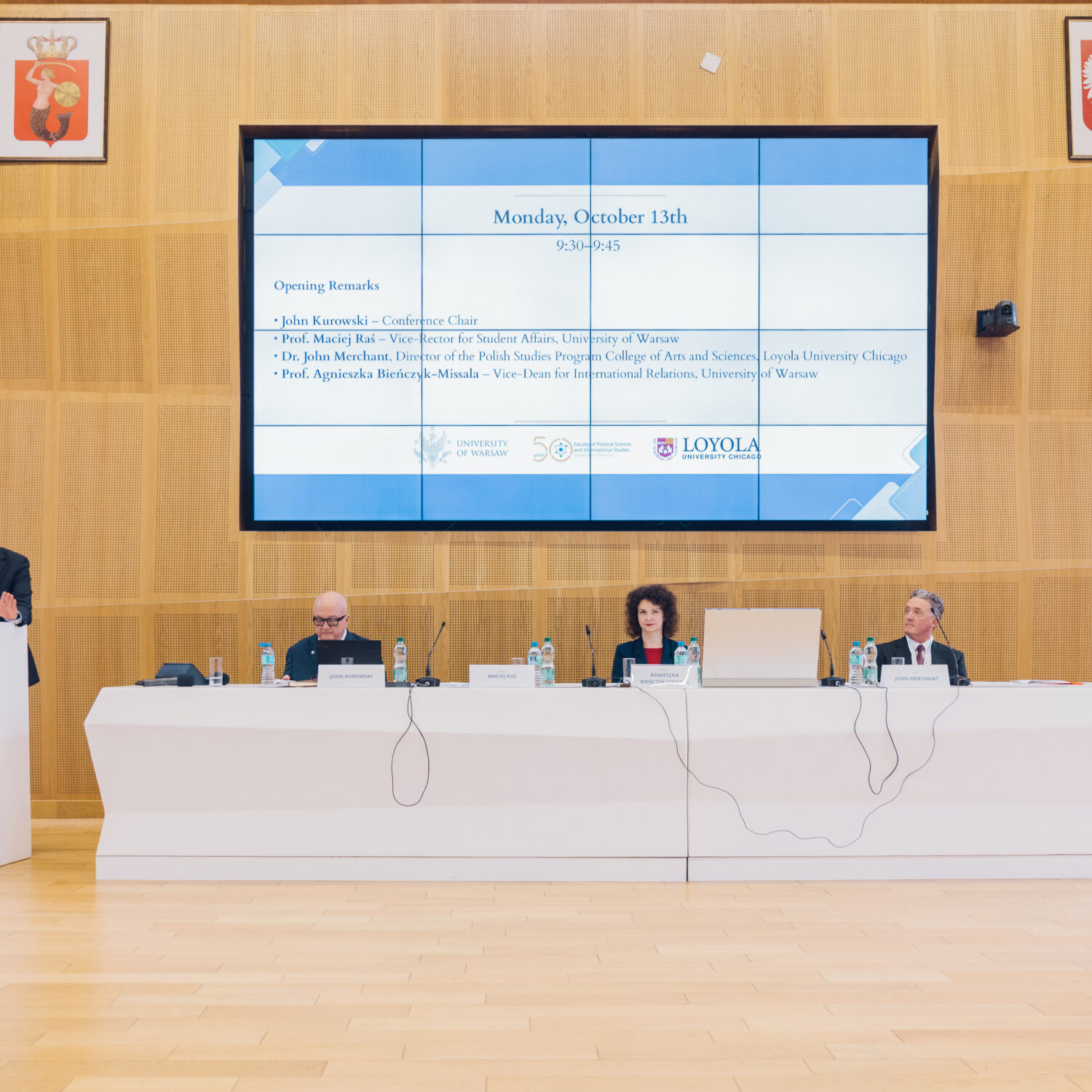Series of seminars with Ukrainian scholars: The Russian-Ukrainian War in the Socio-Political Life of Ukraine

Elections-Democracy-Crisis-2024
February 21, 2024
Geopolitical Tuesday – Geopolitical landscape in the Indian Ocean – Sri Lanka perspective
March 25, 2024
Seminar ІI: Decade under occupation: what does this mean for Crimea’s cultural heritage?
Date, time, and location:
18.03.2024, 18.30-20.00, room 315 (Gmach Audytoryjny WNPiSM, ul. Krakowskie Przedmieście 26/28)
Crimea is a unique part of Ukraine that has absorbed the histories of different peoples and civilizations, from ancient Greece to the indigenous peoples of Ukraine: Crimean Tatars, Karaites, and Krymchaks.
Russia’s illegal occupation of the peninsula in 2014 marked the commencement of the systematic destruction of Crimea’s cultural heritage. This encompasses the looting and illegal export of cultural artefacts, neglect of cultural sites, illegal excavations, and illegal construction in protected territories, among other issues.
The seminar aims to discuss (1) the current state of cultural heritage in the occupied territories of southern Ukraine, (2) monitoring and documentation of Russia’s crimes against culture in these areas, as well as (3) what international organisations can and cannot do to help protect cultural heritage under occupation.
Speakers:
dr hab Oleksandr Symonenko, Institute of Archaeology of National Academy of Sciences of Ukraine, Crimean Institute for Strategic Studies;
Olha Shmychlyk, Crimean Institute for Strategic Studies
Oleksandr SYMONENKO holds a Doctor Habilitatus degree in Archaeology and serves as the Chief Research Fellow at the Institute of Archaeology, National Academy of Sciences of Ukraine. He is also recognized as a Corresponding Member of the Deutsches Archäologisches Institut in Germany and contributes as an Expert at the Crimean Institute for Strategic Studies. His research interests lie, broadly, in the archaeology and history of Sarmatians and Late Scythians. As a field researcher, he is a well-known expert in the barrow and burial ground excavation and spent 40 campaigns in Ukraine and abroad.
The Destruction of Archaeological Heritage of Southern Ukraine
The Kherson region serves as the focal point for the southern steppe zone of Ukraine. In March 2022, Russian invaders swiftly captured the entire Kherson region. Regrettably, archaeological sites shared the unfortunate fate of all cultural infrastructure, experiencing destruction and looting. As the Russian invaders hastily withdrew from Kherson, they barbarously pillaged the Kherson Museum of Local Lore. Almost all barrows exceeding 2 meters in height suffered damage. Additionally, Late Scythian sites, including hill-forts and burial grounds situated along the Dnipro River, were subjected to missiles and artillery fire.
The Russian aggression has inflicted irreparable harm upon the cultural heritage of southern Ukraine, rendering the restoration of the demolished archaeological sites nearly impossible. Russia is accountable for the significant damage caused to the cultural heritage of Ukraine and humanity as a whole, and it is imperative that they be held responsible for these actions.
Olha SHMYHLYK, is a staff member of the Crimean Institute for Strategic Studies, an institution dedicated to monitoring and documenting crimes against cultural heritage in the occupied Autonomous Republic of Crimea and southern regions of Ukraine.
Crimean Institute for Strategic Studies: actions to protect cultural heritage
In the midst of the ongoing war, Ukraine’s cultural heritage faces imminent danger. The Crimean Institute for Strategic Studies (CISS) stands at the forefront, actively engaged in documenting violations that pose a threat to Ukraine’s cultural legacy. During times of conflict, cultural artifacts and historical sites become vulnerable, putting them at risk of irreversible loss.
Over the past year, CISS has meticulously recorded approximately 600 violations against cultural property committed by the Russian Federation in the temporarily occupied territories of Ukraine. These violations are categorized as breaches of international humanitarian law concerning the protection of cultural heritage during armed conflicts.
This discussion will delve into the crucial role played by the Institute in preserving Ukraine’s cultural heritage. We will explore how CISS endeavors to bring attention to the issue of accountability for crimes against cultural heritage, and share insights into the institute’s experiences in collaborating with international organizations.






